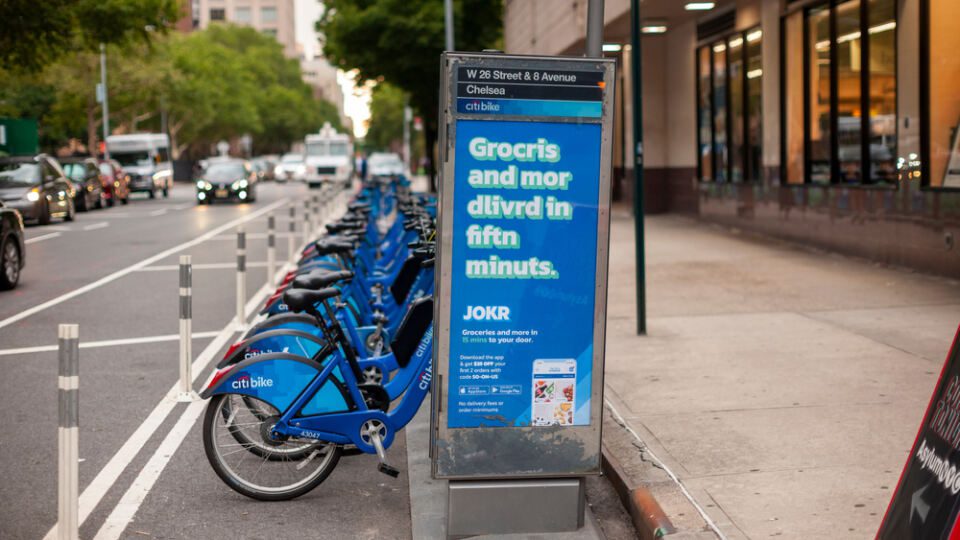On-demand delivery company JOKR is shutting down its U.S. operations to focus on its core Latin America operations, according to emails sent to customers and suppliers seen by Bloomberg and other media outlets. The company will end operations in New York City and Boston after June 19, 2022 and lay off approximately 50 of its 950 global office staff members.
The startup will retain some staff in New York but is continuing to explore selling or closing its U.S. fulfillment centers. The company has approximately nine fulfillment centers servicing its two U.S. markets and about 200 worldwide.
“While we were able to build an amazing customer base (thank you!!) and lay the groundwork for a sustainable business in the US, the company has made the tough decision to exit the market during this period of global economic uncertainty,” said JOKR in an email to customers seen by The Spoon.
JOKR reportedly started exploring a sale of its New York operations in February 2022, people familiar with the matter told The Information. The company, like other delivery startups, has been burning cash to fuel its operations — JOKR had estimated that its U.S. business would lose $74 million in 2022 and $84 million in 2023.
JOKR also is operating at a loss in Latin America, but they are totaling less than $10 million a month, according to Bloomberg. The delivery company is still investing in the region, which accounts for 90% of its business, with plans including further expansion through potential mergers and acquisitions.
JOKR also had a presence in Europe, including 20 microfulfillment centers and operations in Austria and Poland, but the company pulled out of the continent in April 2022, according to documents seen by Bloomberg. At the time a spokesperson said the company was leaving Europe to focus on the U.S. and Latin America, and that it had “generated strong sustainable growth in a very underpenetrated environment and with a huge underlying market opportunity” in both remaining regions.
“Europe is a smaller and more fragmented market,” said the spokesman in an email to Bloomberg. “It has been a small part of JOKR’s business, and we are currently exploring other strategic alternatives.”
Multiple on-demand delivery startups have been pulling back or shutting down altogether in recent months. Both Fridge No More and Buyk shut down earlier this year, but other newcomers like China-based Missfresh have managed to find success with this business model. The retailer has leaned on a network of mini-warehouses, using AI-powered pricing to ensure fast turnover of perishables and a strong private label program with high margins to help it navigate the challenges of rapid delivery.
“[When we first launched] people thought our business was going to be more like a cash-run business, but we are trying to build a route to make [online grocery] more workable on a unit economics level,” said Catherine Chen, Co-CFO at Missfresh in an interview with Retail TouchPoints. “As we continue to build our services targeted to Chinese middle-class customers, we’ll keep exploring ways to improve our profit margins and reduce our fulfillment expense rate to strengthen our competition barriers.”













